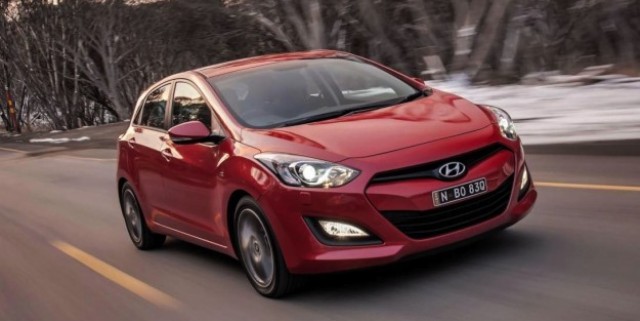
Australia’s impending free trade agreement (FTA) with South Korea will not automatically translate to cheaper prices on imported cars, say the Southeast Asian country’s leading automotive importers.
Prime Minister Tony Abbott today announced an in-principle agreement with South Korea for an FTA between the two nations, which would see the standard five per cent import tariff removed from Korean vehicles sold in Australia.
The Australian and South Korean governments must both approve the deal – which Abbott claims would be worth $5 billion to Australia between 2015 and 2030 – before the FTA comes into effect.
But while an FTA would make vehicles produced in South Korea five per cent cheaper to sell in Australia, the car makers say it’s not a simple case of cutting vehicle sticker prices by an equivalent percentage.
Hyundai Australia chief operating officer John Elsworth said there were a “multitude of different variables” affecting the pricing and profitability of imported cars.
“All things being equal, sure – but pricing doesn’t work like that,” Elsworth said.
“If you reacted to just one [of those variables], you’d be changing your pricing all the time.
“The biggest variable is obviously exchange rate – that can fluctuate daily in both directions. Reacting to that and shifting prices wouldn’t make sense – you have to work longer-term in this business.”
Rather than reducing prices, car makers may decide to pass on the savings in other ways such as boosted equipment levels, though Hyundai Australia public relations general manager Bill Thomas said that was also a slightly simplistic suggestion.
“We have different model mixes and different equipment mixes in each range and it isn’t quite as simple as adding equipment to offset price, it is just a bit more complex than that,” Thomas said.
“It is certainly something that we’ll look at, and it does affect the overall mix, but it’s just one of many factors.”
Asked whether the FTA helped Hyundai Australia’s case for bringing the luxury Genesis sedan to our shores, however, Thomas admitted, “it certainly doesn’t do it any harm”.
“But again, it’s a matter of where we decide to price that car and what the spec will be.
“It’s a tricky one because we don’t actually know the exact specifications of that car and we haven’t actually officially announced that we’ll be taking it anyway.”
Kia Australia public relations general manager Kevin Hepworth said the company was upbeat about the FTA announcement but said it was too early to speculate about any potential impact on its local vehicle line-up.
“We don’t know any of the terms of it, we don’t know the timing of it,” Hepworth said. “It’s way, way too early to even consider what effect it may have on operations within Australia.
“That said, Kia Motors is of course very pleased to hear of the advancement in the negotiations, and going forward we will be having a very close look at it.”
South Korea is Australia’s third-largest vehicle importer after Japan and Thailand. A total of 125,369 Korean cars have been sold in Australia so far this year.
Australia currently has trade agreements with Chile, Malaysia, New Zealand, Singapore, Thailand and the USA, and is in negotiations with five other nations: China, India, Japan, Indonesia and South Korea.





